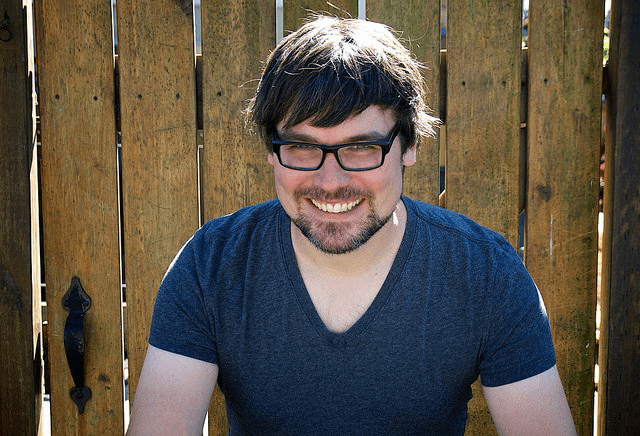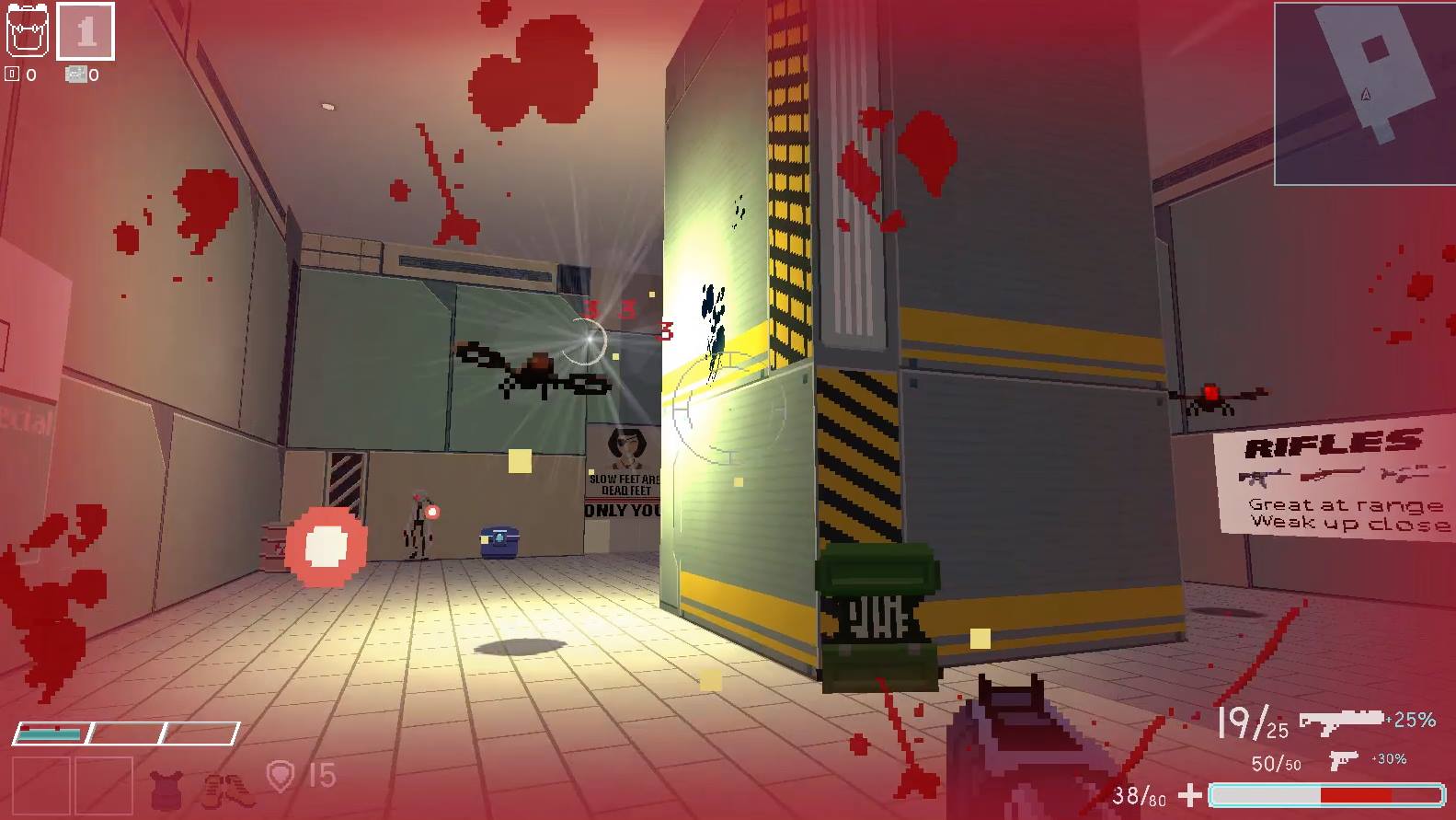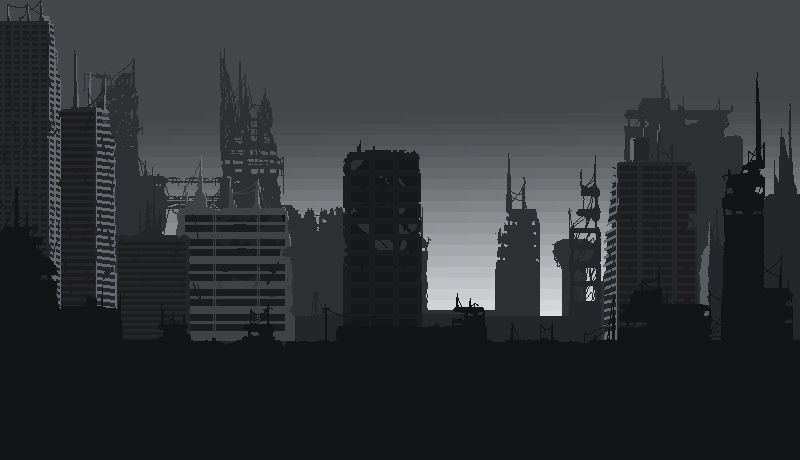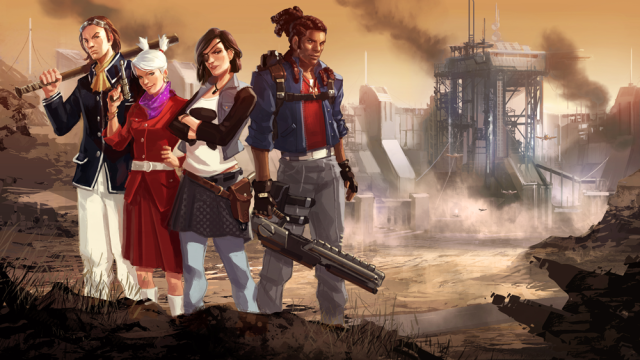Game developer Shane Neville is no stranger to crunch. He claims that while he was at Electronic Arts in the late ’90s, he once worked nearly four months without a day off, averaging 90 to 110 hours per week making Need For Speed: Porsche Unleashed. Eventually, after seeing the toll it took on him, he swore off crunch. He was wrong.
Ironically, it was only once he was out of the corporate grind, working on an indie title of his own, that he fell back into his bad habits, a crunch hell of his own design.
“The Bunker Punks crunch was probably two months of working every day,” Neville told Kotaku via phone last week. “Compared to what I did at EA, it wasn’t terrible, but when I came out of it, and I started seeing my doctors, seeing the optometrist, seeing my foot doctor, it made me realise what I was doing to myself.”

Neville is a 20-year video game industry veteran, having first gotten his start at EA as a QA tester. He worked on series such as Need For Speed at EA before moving onto Nokia to make games for its failed phone-handheld hybrid N-Gage, then Company of Heroes developer Relic, then the Ubisoft-affiliated Longtail Studio.
Now an indie, the creator of Bunker Punks, Neville said he’d like to spend another 20 years making games, but there’s just one problem: Thanks to crunch, his body is breaking down. His right eye frequently goes out of focus. His hip needs physiotherapy. His foot won’t stop going numb, making it difficult to stand for long periods of time.
The crunch that hit him hardest, he said, was his recent self-imposed stint. Going into development on Bunker Punks, a roguelike first-person shooter where you try to overthrow a dystopian corporate government, Neville was stridently anti-crunch.
“I had been anti-crunch ever since I went to Relic and realised it was really possible to do stuff without insane hours,” he said. Relic wasn’t completely without crunch, he claimed, but the company focused a lot on work-life balance during his time there.
While he was originally creating Bunker Punks, Neville tried to stick with his no-crunch strategy. What he didn’t expect was what would happen after he released it into early access on Steam in March 2016. He’d crunched some beforehand, but the crunch only got really bad after the game came out.

“It’s the month after launch, and you’re looking at the forums and people are finding bugs, and you’re crunching to get the bugs,” Neville said. “It’s not like a traditional triple-A crunch where the game goes out the door, and maybe you start working on a day-one patch or something like that, but you’re not crunching once the crunch is done.”
He added that it’s easy to slip into old bad habits when you’re working as a mostly solo developer on Steam, because perspective goes out the window.
“Expectations are so vague, and it’s really hard to know when enough is enough,” he said. “You get into this loop of just putting things in the game, and you don’t know any more whether it’s something the audience expects, whether it’s adding value to the game at all, if it’s going to make the game better. You just build this huge list of things that need to go into the game.”
The main outside influences Neville did encounter while crunching only enabled his crunch, he said. Hundreds of people asked for Steam keys, which he’d then have to audit so that he wouldn’t get flagged on lists of grey-market Steam key resellers – which would lead to lost profits, but also even more requests for Steam keys. He also had to deal with friends asking him for keys, or trying to get him to speak at conferences.
And all the while, the Steam community continued to demand more, more, more – requests that only Neville, as the mostly-sole creator of the game, could fulfil. If the art didn’t look great, he had to spit-shine the smudge. If there was a bug in the code, he had to go in and tweeze it out. If the game’s balance was off, he had to come to the rescue.
“It’s a lot of pressure,” Neville said, “and you don’t want to let anyone down, so you just keep going and going.”
Neville crunched for two months on Bunker Punks, working 70-80 hours per week. It wasn’t as bad as his time at EA, but there was a crucial difference: Back in his halcyon EA days, he was in his 20s. Now he’s in his 40s, and his body has decided that it’s not about that life any more.
“When I had a crazy crunch in my 20s, I came out, and I was tired, I was exhausted, the world seemed strange and unusual to me, but I was fine physically,” he said. “I didn’t feel like I was scarring myself.”
But time and crunch – especially working in conjunction – take tolls. Even though Neville has recently tried hard to revamp his lifestyle and approach game development in a healthier way, he’s still coping with injuries that emerged while he was crunching on Bunker Punks, sitting and staring at the screen for countless uninterrupted hours.
He’s been diagnosed with epithelial basement membrane dystrophy in his right eye, which causes it to go out of focus and function inconsistently. He has to switch between four pairs of special glasses throughout the day to make up for it.
His hip and foot are also in bad shape, he said. “It was in this last six weeks of crunch, the outside of my right foot… started getting numb, so then I started standing funny because my foot was getting numb, and then I injured my right hip that I’m still getting physio for because my physiotherapist has no idea what’s happening.”
Neville lives in Vancouver, Canada, and his wife has a “great” benefits plan, so his situation isn’t as costly as it might have been if he lived in the United States. Still, the physiotherapy for his hip, custom orthotic inserts for his feet, and special pairs of glasses haven’t been cheap.
“I’ve probably spent two Steam sales’ worth of revenue on recovering from the injuries and treatment and things like that,” he said, and estimates he has spent about $CA2000-4000 (about $2070-4140) for treatment.

Fortunately for Neville, he realised how close he was to the brink in time to take a step back. “I think I’m like 80 per cent there,” he said of his attempts to do a better job of balancing his work and life.
“I’m really strict on when I work. I pick up my daughter at school at three-thirty every day. I usually, if it’s not raining out, spend the next hour in the playground, watching her play. After dinner, unless it’s like a conference call or an email, I do no work after dinner ever, period. The evenings are for spending time with my family.”
Neville said he’s also trying to take better care of his body. A former BMX rider, he’s been sidelined for years, but he wants to get back to it. “I haven’t been able to ride my bike for eight years because of back pain and hip pain and things like that,” he said. “So I’ve been pushing a lot on the physio, and also yoga, which helps mental health as well.”
All that said, Bunker Punks is leaving early access soon, meaning that Neville’s new lifestyle is about to face its sternest test yet. “I think I’m there,” he said, “but I’ve got a game coming out in three weeks, so I’ll find out how I feel after that.”

Comments
2 responses to “20 Years Of Crunch Take Their Toll On A Game Developer”
Having been in a similar situation in another industry than transitioning into another career and look back from the outside in.
I’d say the same thing may apply here to what I saw with myself, “It maybe worthwhile for some of these developers to get some project management training…”
It seems to happen often a bunch of developers who have the skills to make something good go out on there own, but it’s the management that makes it fall apart. It takes a lot more than being a good developer to make a game.